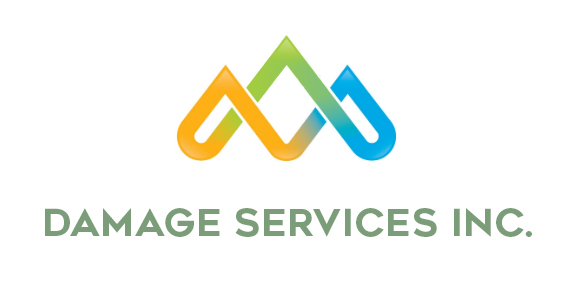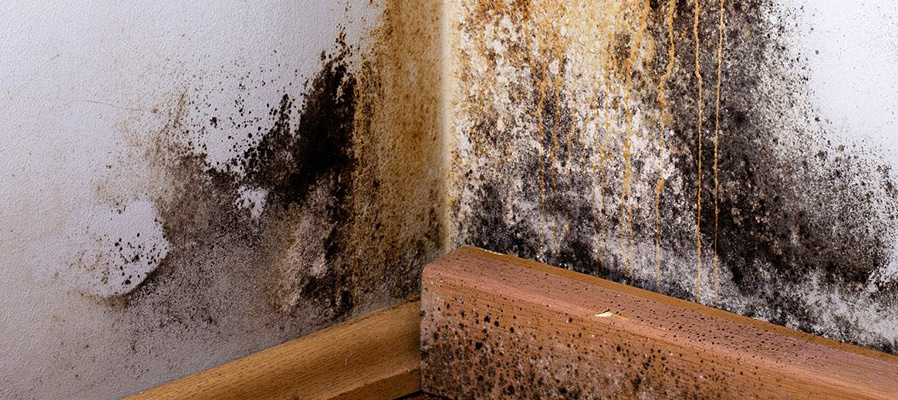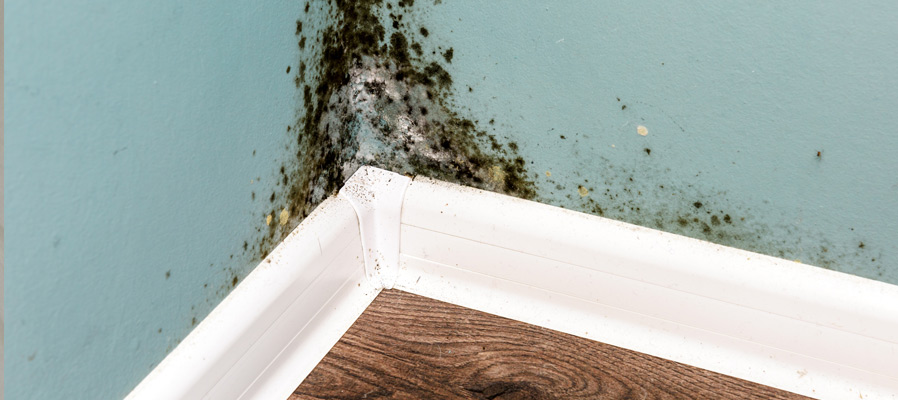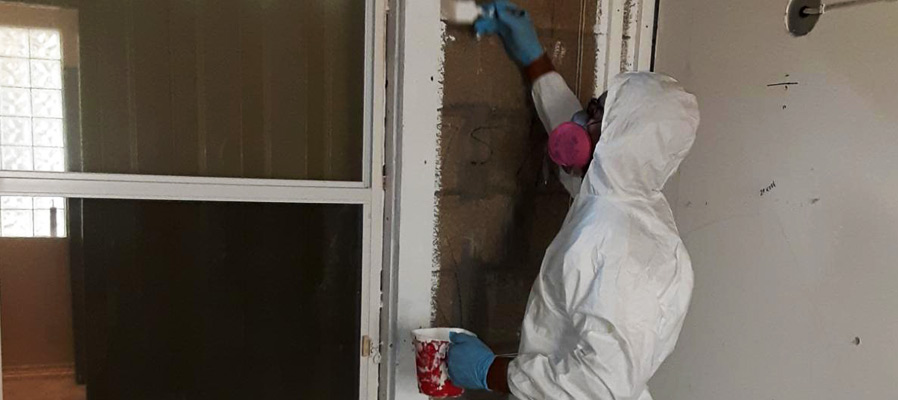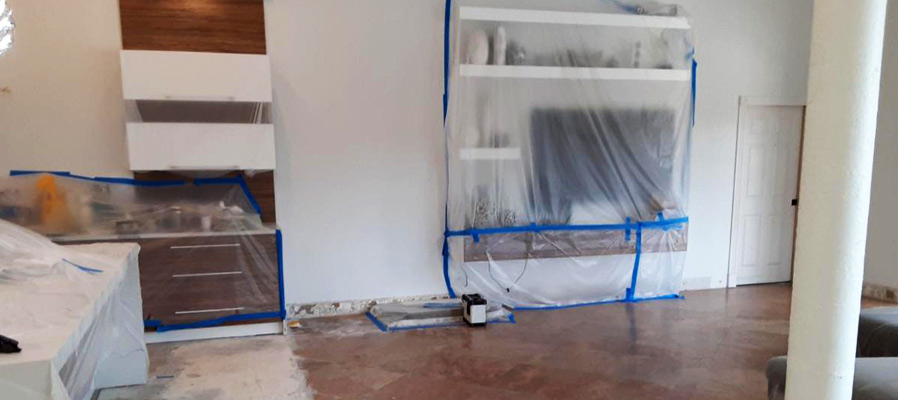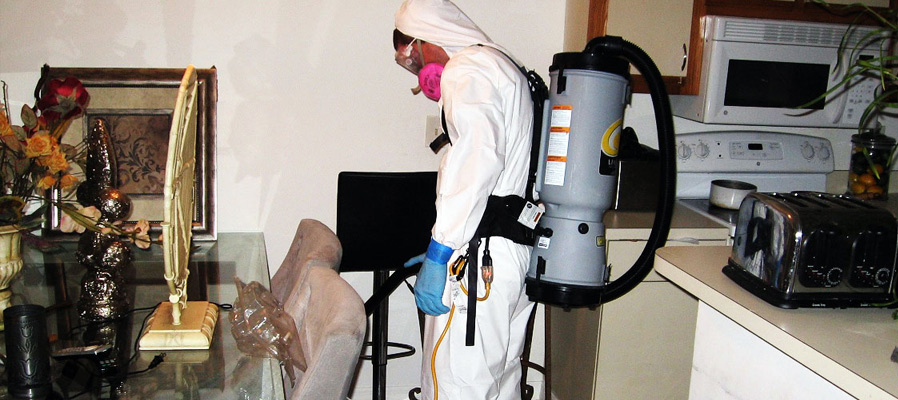LICENSING OF MOLD
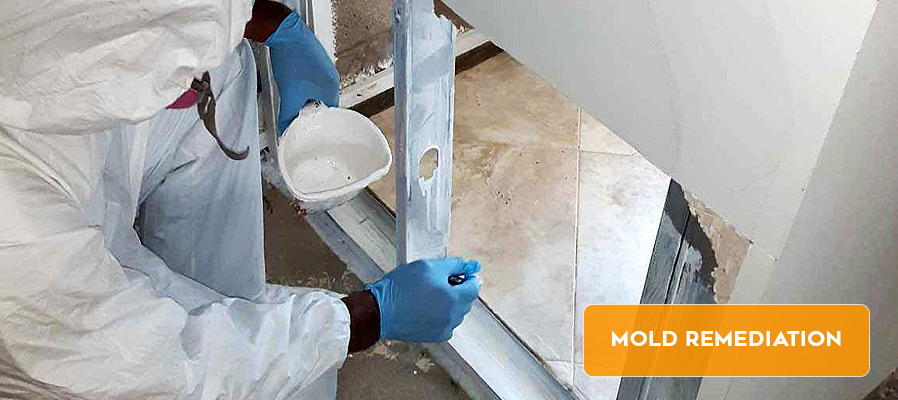
When it comes to mold, two specialists are involved. A mold assessor, and a mold remediator.
Mold assessor’s job is to sample the substance suspected to have mold spurs. This is done by an Air quality test, or a Swab test, which is sent to a laboratory. The mold assessor will then issue something called a “Mold Report”. In it, there are sections the mold remediator needs to read and follow as “guidelines” for the project.
The job of a mold remediator is to safely remove the infected areas and ensure the project is executed without risk to the occupants or to other clean areas.
HOW TO RECOGNIZE MOLD?
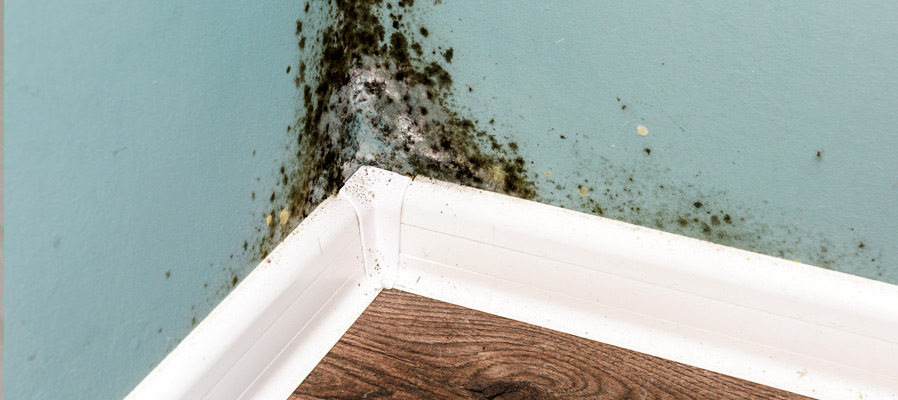
If you see something that looks like green or black spots in a moist place, or an area that’s suffered water damage, it could very well be mold, and there is a very simple thing you can do to find out if it is.
1- Text or Email pictures to our mold remediator by calling 800.292.5777 or by emailing Leo@damageservice.com
He is very experienced and can typically tell you if you are indeed dealing with mold, from the images. If we can’t, we will recommend hiring a mold assessor.
2- If there is a strong odor of mold which you cannot locate or see, you will need to conduct an air quality test with a mold assessor. If you need help to find one, please give us a call. We have a list of trusted vendors.
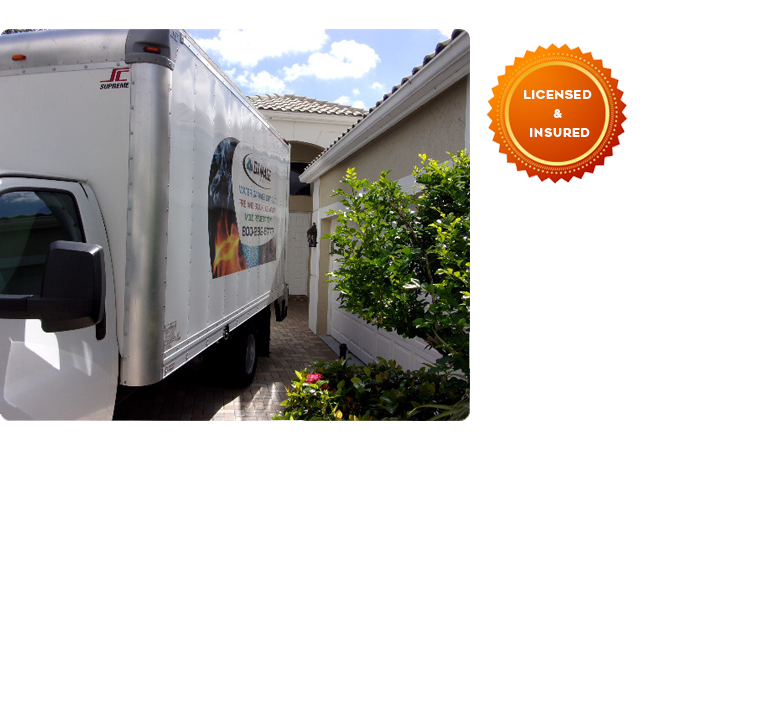
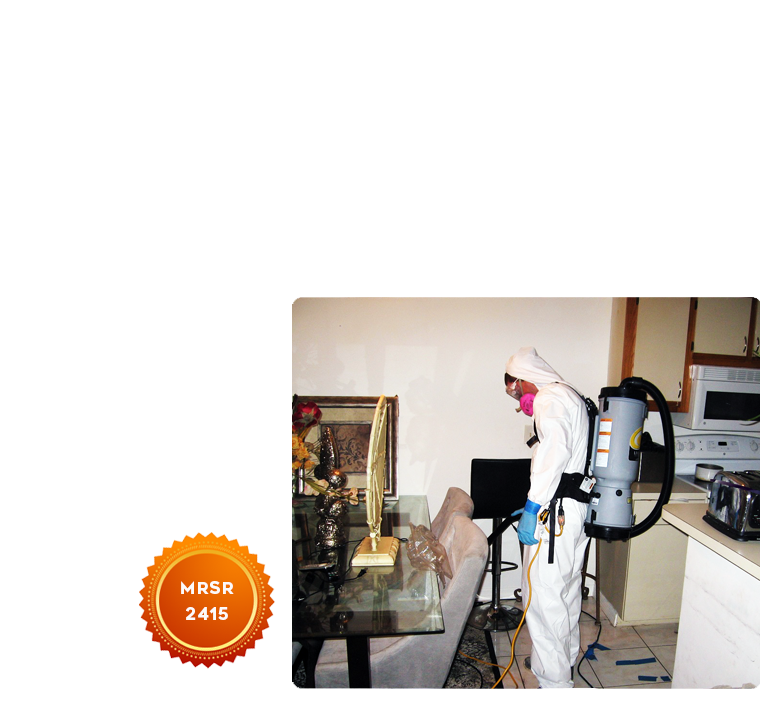
RESTORATION - DRY OUT - WATER EXTRACTION
LICENSING OF MOLD
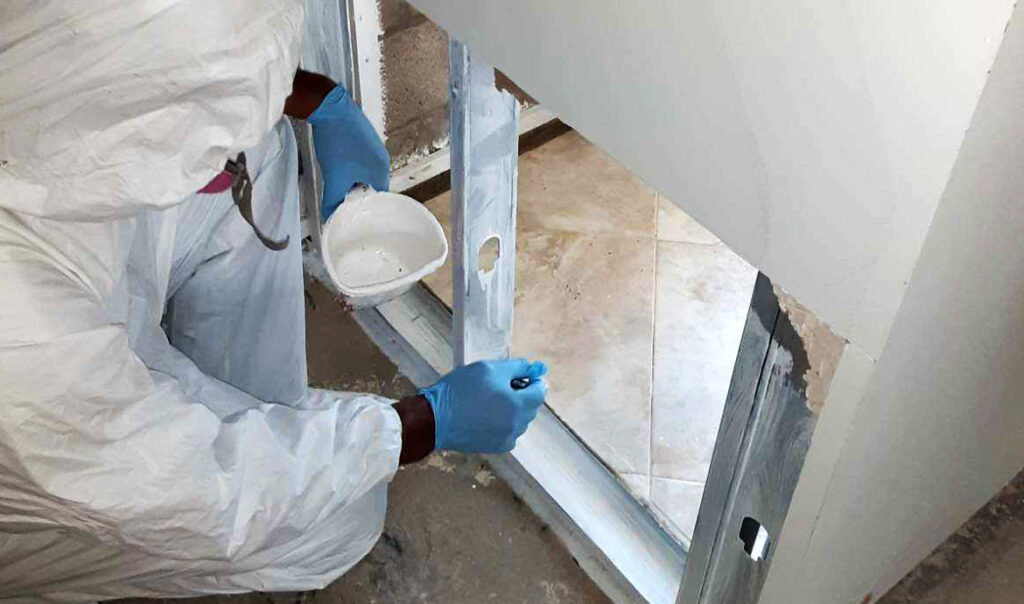
When it comes to mold, two specialists are involved. A mold assessor, and a mold remediator.
Mold assessor’s job is to sample the substance suspected to have mold spurs. This is done by an Air quality test, or a Swab test, which is sent to a laboratory. The mold assessor will then issue something called a “Mold Report”. In it there are sections the mold remediator needs to read and follow as his “guidelines” for the project.
A mold remediator’s job is to actually remove the infected areas in a safe manner; to make sure the project is executed without any risks for the occupants, and that other clean areas do not get affected.
